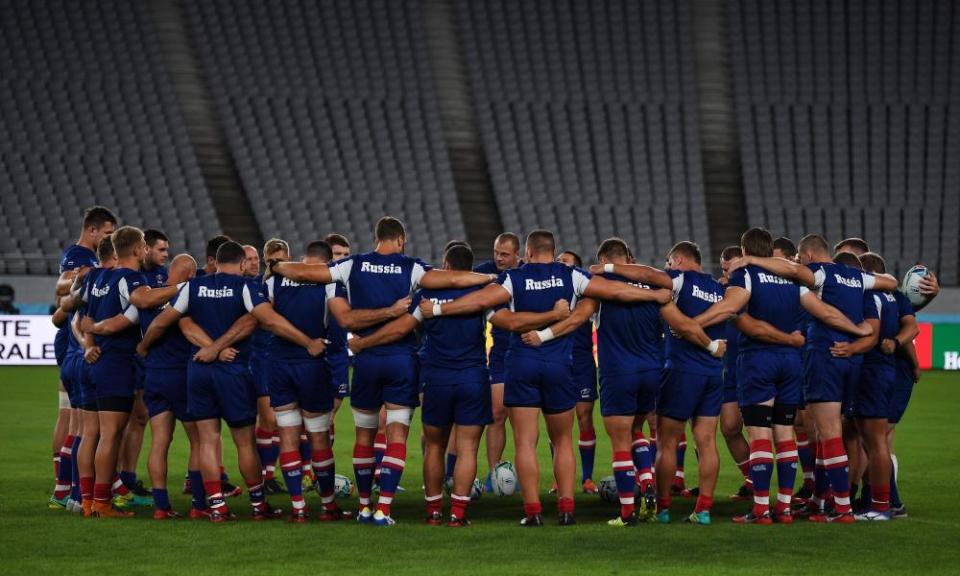‘The pressure is on Japan’: Russia seek upset in Rugby World Cup opener

When Japan last played Russia in Tokyo, nine years ago, the attendance was little more than 6,000. On Friday night the Ajinomoto Stadium will be at its 49,970 capacity as the two countries open the ninth Rugby World Cup, the first of what the organisers are confident will be 48 sell-out crowds in a nation where rugby union is far from an institution.
Related: Humidity to home heroics: five things to look out for at the Rugby World Cup | Ben Ryan
Japan are not used to having the eyes of the rugby world on them. The only other occasion was when they beat South Africa in the 2015 tournament. The one concern here for their prospects against a team ranked 20th in the world, who lost at home to Jersey recently, is whether the glare of the spotlight blinds them.
Russia hope so. “The pressure is on them and we will do everything to spoil it for Japan,” said their captain, Vasily Artemyev. “If they are not at their best, we will have a good chance. It is not just an important game for them – we want to become a fixture at the World Cup and compete against the top nations. We will be so up for it there will be enough adrenaline in our bodies to raise the dead.”
Russia and Japan both trained at the ground on Thursday, the quiet before the noise. “There are so many reporters here,” said Japan’s scrum-half Yutaka Nagare. “The attention on this game is such that I am sure I will be nervous. The crowd will be huge and the atmosphere great. I am telling myself to enjoy it and be confident.”

The two countries have met six times since their first match in 2002. Japan have won five with Russia’s success coming here in 2003 in a defunct tournament known as the Super Powers Cup. A home defeat would be seriously deflating for the hosts given the only deep roots in the game here are in universities, but it would be a far greater shock than Japan’s victory over the Springboks.
It would also be a significant blow for World Rugby which, in a year when its Nations Championship plan – and with it a proposed pathway for the emerging nations to join the elite – was squashed by the Six Nations, needs one of the tier two countries to make the knockout stage and expose the cartel operating at the top of the game.
Japan Tupou; Matsushima, Lafaele, Nakamura, Lemeki; Tamura, Nagare; Inagaki, Horie, Valu; Van der Walt, Moore; Leitch, Labuschagne, Himeno.
Replacements Sakate, Nakajima, Ji-won, Thompson, Tui, Tanaka, Matsuda, Yamanaka.
Russia Artemyev; Davydov, Ostroushko, Gerasimov, Golosnitskiy; Kushnarev, Dorofeev; Morozov, Selskii, Gotovtsev, Ostrikov, Fedotko, Zhivatov, Gadzhiev, Vavilin.
Replacements Matveev, Polivalov, Bitiev, Garbuzov, Sychev, Perov, Gaisin, Sozonov.
Japan and Fiji are the only two candidates. If this tournament is to have a legacy that will impact on the game as a whole, the old order needs to be shaken by more than a one-off victory. Otherwise, by the time of the 2023 World Cup, the tier one nations will very likely be officially self-governing.

 Yahoo News
Yahoo News 